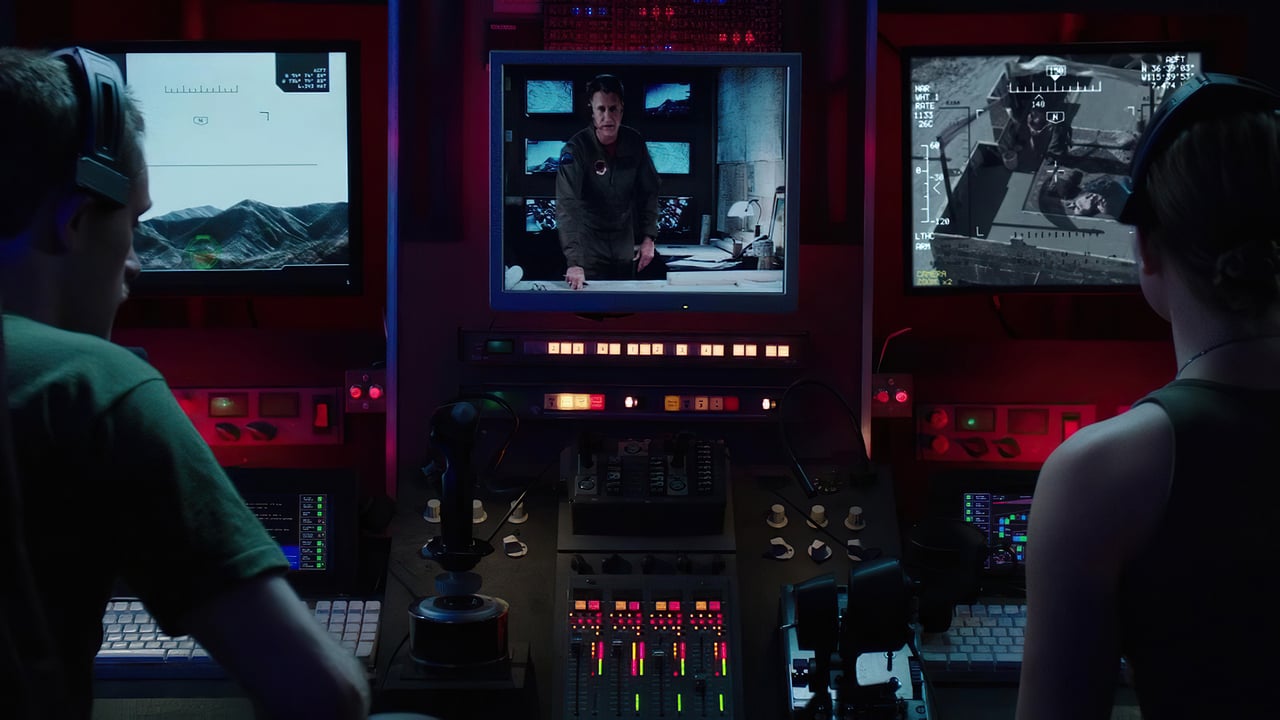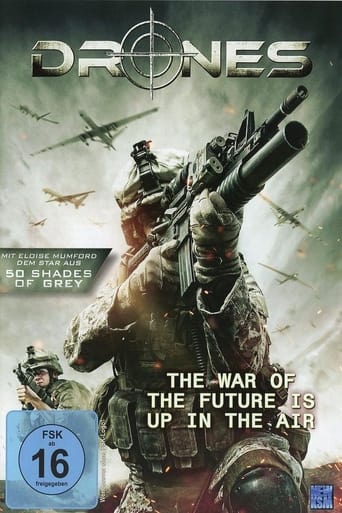AniInterview
Sorry, this movie sucks
Inadvands
Boring, over-political, tech fuzed mess
Neive Bellamy
Excellent and certainly provocative... If nothing else, the film is a real conversation starter.
Sanjeev Waters
A movie that not only functions as a solid scarefest but a razor-sharp satire.
lrivers-09766
The movie for me was very good and interesting. Strange there are not more like this. I expect it may be to fear of retaliation. This is a very sensitive issue with our own citizen and other countries also. Only real problem was the sound quality and loudness, it was atrocious. I would give the sound engineers a zero. It was very hard to hear the dialog without turning up the volume. Problem then is the background sound and effects are unbearable. Too loud to hear the dialog. So what I ended up doing was constantly turning the volume up and down. The movie theaters are even worst in this regard. To wrap up the movie I would say it needs more attention to sound and add more characters. The ones outside could have built a second story line. would be very good if they had better quality control over sound.
j_chy
Not an action movie!I tend to like movies with onion layers to their central conflict, and this one did have them. It was not well written or acted though. Echoing the opening scene of WarGames, the movie explores the well- trodden dramatic area of 'orders versus morality' found so often in movies such as A Few Good Men.Better Dialogue, character development, and acting would add to this and crank up the tension. The perfect soldier (trainee) was difficult to believe as having moral qualms. The fundamental difference between warfare with piloted versus drone aircraft (in harm's way) was all but ignored with more of a focus on collateral damage. Well, F22's kill innocents too, so I have trouble understanding why the trainee has reservations. Assuming her strong education, not only in the military, but in theories of war and government, she should have come to grips with "following orders" long before she was put into this situation. The senior pilot (trainer) was a reasonable 1-dimensional character as the pizza- eating, video-gaming pilot that had no care in the world. The character growth and changes in point of view during the movie is sudden and slightly inexplicable. Additionally, the contact with the chain of command and the lack of support from the military for this pair of drone pilots was unbelievable.As all of the action takes place in a desert trailer, this movie would be better-suited to a stage presentation.
reader-e
This film raises thought provoking questions about the intersection of technology, morality and war. It deals with several different moral issues. The story line is that there are two people assigned to man a drone spy plane and they have to decide whether the person arriving at the site they are spying on is correctly identified as the Al-Qaeda terrorist they think he is, and they have to decide whether or not they should take him out if it involves killing other people including children. They are also aware of how the attack will be reported and spun (i.e. the other people will be considered as conspirators, even though clearly that isn't the case.) There are issues involving the idea of the ends justifying the means, as well as the psychological issues including the effects of these decisions on the people manning the drones. It also raises questions related to the use of drones and privacy and the fact that drones provide a way to look into every corner of the world, including ones normally considered private. It makes a great movie to use as a springboard for discussions.
Mousekill
I'm guessing the folks that made this movie are impressed with themselves for having the nerve to deal with such a timely and deep moral issue. Should they take the shot? The writers created a very provocative scenario that forces the choice of killing non-combatants along with the terrorist or letting the terrorist go. A long debate ensues where the characters agonize over whether to take the shot. The story's scenario is fantasy, the actions of the crew are inexcusable, and the "dilemma" faced by the crew isn't new or timely.1. The scenario where they have to shoot because the relief aircraft was diverted is unlikely at best. They are flying in a combat zone. The diverted aircraft is the only asset available in the entire area? There are no ground units, manned aircraft or unmanned aircraft from other serves available to delay the shot until the target is clear of non-combatants? If the target is that important, they would have found something somewhere to provide coverage.2. Members of the armed services usually do not have the luxury to debate the morals of lawful orders, and they are never given the option to ignore them. The chain of command would never have tolerated a junior officer and an enlisted airman ignoring orders for that long. If they were feeling generous, I guess they may have allowed one "I can't do it" but the idea of senior officers trying to reason and begging for a lieutenant and an enlisted airman to act is fantasy. This would be especially true with a high value asset like the unmanned systems. The security forces would have quickly appeared to provide a replacement crew.Military members are not given the option to ignore lawful orders. They are often not provided with why orders are given, and this still doesn't allow them to ignore the order. Requiring the chain of command to provided detailed explanations for every order would be ungainly and pointless. Sometimes obeying an order is a bit of an act of faith that the chain has access to information on which it is basing the order.3. The "dilemma" faced by the unmanned aircraft crew is not new. War is violent, destructive and weapons often hit noncombatant targets. Aerial bombing and artillery are obvious examples. It mystifies me why so many have the impression that flying a plane remotely somehow changes the dynamics of the process. Bomber pilots didn't ride their bombs to the targets, they lined a building up in a site and pushed a button. Artillery crews set angles to their guns, set the fuse, add that charge and yank a lanyard. As for the watching a target die, infantryman and snipers have been doing it for centuries.In the unlikely scenario presented in the movie, would the scenario have been less of dilemma if the unmanned aircraft hadn't been able to take the shot and something more conventional had been used to kill the terrorist? Would artillery or missile fired from a manned aircraft have resulted in fewer deaths? Or if an infantry unit had been used, would the terrorist have surrendered simply because he was near children? What if the terrorist was still killed, but managed to kill an U.S. soldier or two? Or what if he had been allowed to escape because he was near non-combatants. Would the morality of refraining from the shot justly any US soldiers or other local non-combatants he later killed? Even in the movies' unlikely and unpleasant scenario, the unmanned aircraft allowed the threat to be eliminated without exposing friendly forces to danger.War always poses many moral questions to our nation, our government and our armed forces and these questions should be asked and explored. This movie makes up an irrelevant and unlikely situation, deals with it in a completely implausible way, and the only moral dilemma it creates is why the characters were allowed to behave badly for as long as they did.

